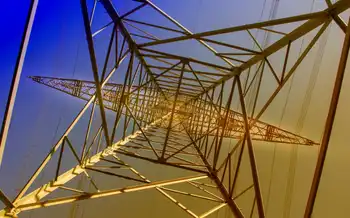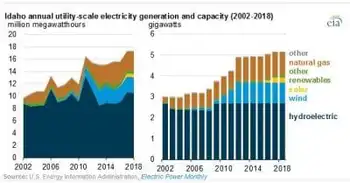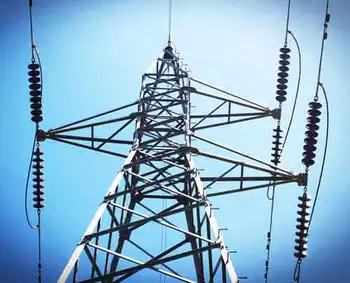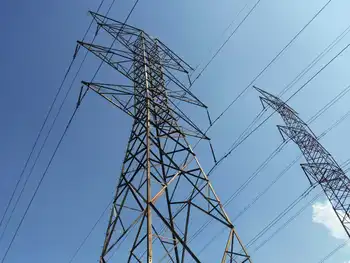Wildfire Resilient Power Grid Act proposes DOE grants for utility companies to fund wildfire mitigation, grid resilience upgrades, undergrounding power lines, fast-tripping protection, weather monitoring, and vegetation management, prioritizing rural electric cooperatives.
Key Points
A federal bill funding utility wildfire mitigation and grid hardening via DOE grants, prioritizing rural utilities.
✅ $1B DOE matching grants for grid upgrades and wildfire mitigation.
✅ Prioritizes rural utilities; supports undergrounding and hardening.
✅ Funds fast-tripping protection, weather stations, vegetation management.
U.S. Sens. Ron Wyden and Jeff Merkley today introduced new legislation, amid transmission barriers that persist, to incentivize utility companies to do more to reduce wildfire risks as aging power infrastructure ignite wildfires in Oregon and across the West.
Wyden and Merkley's Wildfire Resilient Power Grid Act of 2020 would ensure power companies do their part to reduce the risk of wildfires through power system upgrades, even as California utility spending crackdown seeks accountability, such as the undergrounding of power lines, fire safety equipment installation and proper vegetation management.
"First and foremost, this is a public safety issue. Fire after fire ignited this summer because the aging power grid could not withstand a major windstorm during the season's hottest and driest days," Wyden said. "Many utility companies are already working to improve the resiliency of their power grid, but the sheer costs of these investments must not come at the expense of equitable regulation for rural utility customers. Congress must do all that it can to stop the catastrophic wildfires decimating the West, and that means improving rural infrastructure. By partnering with utilities around the country, we can increase wildfire mitigation efforts at a modest cost -- a fire prevention investment that will pay dividends by saving lives, homes and businesses."
"When this year's unprecedented wildfire event hit, I drove hundreds of miles across our state to see the damage firsthand and to hear directly from impacted communities, so that I could go back to D.C. and work for the solutions they need," said Merkley. "What I saw was apocalyptic--and we have to do everything we can to reduce the risk of this happening again. That means we have to work with our power companies to get critical upgrades and safety investments into place as quickly as possible."
The Wildfire Resilient Power Grid Act of 2020:
* Establishes a $1 billion-per-year matching grant program for power companies through the Department of Energy, even as ACORE opposed DOE subsidy proposals, to reduce the risk of power lines and grid infrastructure causing wildfires.
* Gives special priority to smaller, rural electric companies to ensure mitigation efforts are targeted to forested rural areas.
* Promotes proven methods for reducing wildfire risks, including undergrounding of lines, installing fast-tripping protection systems, and constructing weather monitoring stations to respond to electrical system fire risks.
* Provides for hardening of overhead power lines and installation of fault location equipment where undergrounding of power lines is not a favorable option.
* Ensures fuels management activities of power companies are carried out in accordance with Federal, State, and local laws and regulations.
* Requires power companies to have "skin in the game" by making the program a 1-to-1 matching grant, with an exception for smaller utilities where the matching requirement is one third of the grant.
* Delivers accountability on the part of utilities and the Department of Energy by generating a report every two years on efforts conducted under the grant program.
Portland General Electric President and CEO Maria Pope: "We appreciate Senator Wyden's and Senator Merkley's leadership in proposing legislation to provide federal funding that will help protect Oregon from devastating wildfires. When passed, this will help make Oregon's electric system safer, faster, without increasing customer prices. That is especially important given the economy and hotter, drier summers and longer wildfire seasons that Oregon will continue to face."
Lane County Commission Chair Heather Butch: " In a matter of hours, the entire Lane County community of Blue River was reduced to ashes by the Holiday Farm Fire. Since the moment I first toured that devastation I've been committed to building it back better. I applaud Senators Wyden and Merkley for drafting the Wildfire Resilient Power Grid Act, as it could well provide the path towards meeting this important goal. Moreover, the resultant programs will better protect rural communities from the increasing dangers of wildfires through a number of preventative measures that would otherwise be difficult to implement."
Linn County Commissioner Roger Nyquist: "This legislation is a smart strategic investment for the future safety of our residents as well as the economic vitality of our community."
Marion County Commissioner Kevin Cameron: "After experiencing a traumatic evacuation during the Beachie Creek and Lion's Head wild fires, I understand the need to strengthen the utility Infrastructure. The improvements resulting from Senator Wyden and Merkley's bill will reduce disasters in the future, but improve everyday reliability for our citizens who live, work and protect the environment in potential wildfire areas."
Edison Electric Institute President Tom Kuhn: "EEI thanks Senator Wyden and Senator Merkley for their leadership in introducing the Wildfire Resilient Power Grid Act. This bill will help support and accelerate projects already planned and underway to enhance energy grid resiliency and mitigate the risk of wildfire damage to power lines. Electric companies across the country are committed to working with our government partners and other stakeholders on preparation and mitigation efforts that combat the wildfire threat and on the rapid deployment of technology solutions, including aggregated DERs at FERC, that address wildfire risks, while still maintaining the safe, reliable, and affordable energy we all need."
Oregon Rural Electric Cooperative Association Executive Director Ted Case: "Oregon's electric cooperatives support the Wildfire Resilient Power Grid Act and appreciate Senator Wyden's and Senator Merkley's leadership and innovative approach to wildfire mitigation, particularly for small, rural utilities. This legislation includes targeted assistance that will help us to continue to provide affordable, reliable and safe electricity to over 500,000 Oregonians."
Sustainable Northwest Director of Government Affairs & Program Strategy Dylan Kruse: "In recent years, the West has seen too many wildfires originate due to poorly maintained or damaged electric utility transmission and distribution infrastructure. This legislation plays an important role to ensure that power lines do not contribute to wildfire starts, while providing safe and reliable power to communities during wildfire events. Utilities must, even as Wyoming clean energy bill proposals emerge, live up to their legal requirements to maintain their infrastructure, but this bill provides welcome resources to expedite and prioritize risk reduction, while preventing cost increases for ratepayers."
Oregon Wild Wilderness Program Manager Erik Fernandez: "2020 taught Oregon the lesson that California learned in the Paradise Fire, and SCE wildfire lawsuits that followed underscore the stakes. Addressing the risk of unnaturally caused powerline fires is an increasingly important critical task. I appreciate Senator Ron Wyden's efforts to protect our homes and communities from powerline fires."
Related News












